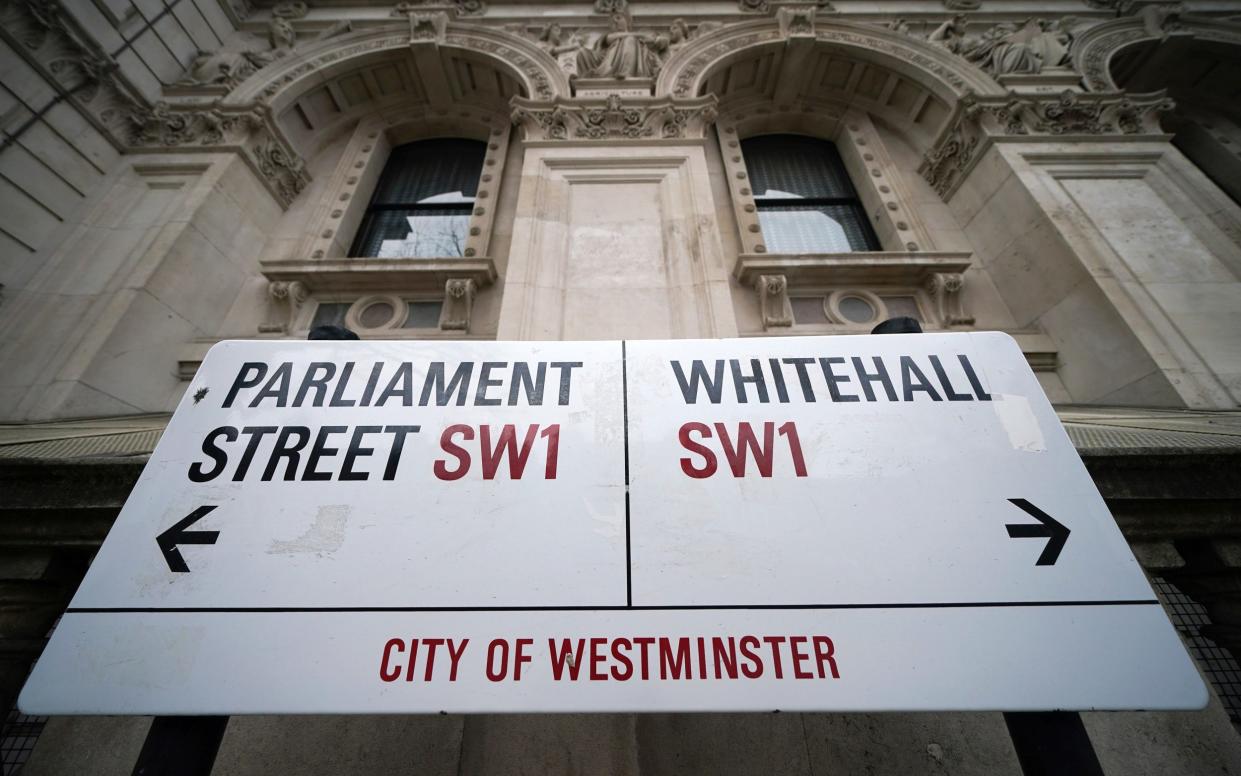Britain needs hard choices, not the cushy ‘consensus’ of mistaken elites

There are times in history when politics is about accommodation and consensus: the search for synthesis between political traditions. And there are times when it is about bold choices: contested decisions by leaders willing to risk unpopularity and failure to take a country towards a different and, they hope, better future.
The examples run through Britain’s democratic past. The shared Victorian commitment to unilateral free trade was eventually challenged, first unsuccessfully, before giving way to tariff reform. The post-war consensus of Keynesian demand management, nationalisation and corporatism lasted for more than three decades until it was slayed by Margaret Thatcher.
Today, we have a broad consensus based on two strands of liberalism. An economic liberalism, in which the state tries to stay out of markets and eschews the option to intervene or take on a strategic role. And a cultural liberalism, fused with progressivism, in which social norms and laws that promote restraint are attacked, our common culture is undermined, and the rights and obligations of citizenship are sacrificed in the name of universalism.
There have been attempts to break out from this consensus. On the economy, we have seen several abandoned efforts to launch an industrial strategy, last-ditch interventions such as the nationalisation of train companies, and a growing critique of rentier capitalism – from leasehold reformers to the critics of privatised utilities. On the cultural front, we have seen limited fightbacks such as the Cass Review. Overall, however, the consensus endures. Yet the reality is that it is failing, and we now find ourselves in an age of choices.
On security and defence, for example, the world around us has changed. Russia threatens not only Ukraine, but Nato member states on Europe’s eastern border. Iran seeks nuclear weapons as it destabilises not only the Middle East but trading routes and energy exports that are vital to the world economy. China plans to dominate the Pacific, and to do so President Xi is prepared to risk confrontation and war with America.
For all these reasons defence spending will need to increase. At the same time, pensions, health and social care spending will also continue to increase as our population ages further. A faster-growing economy is obviously better placed to take on these costs, but with low growth taxes will remain high by historical standards. Yet the political debate about fiscal policy continues as though these unavoidable facts were not true.
The choices we face about fiscal policy are constrained by our indebtedness and exposure to international bond markets, but there are choices nonetheless: about the distribution of spending, the burden of taxation, the balance between day-to-day spending and investment, and more. And there are choices about reforms to get the economy growing. Many assumptions of the existing consensus – that our huge trade deficit does not matter, that we should not worry about the balance between services and manufacturing, that unilateral decarbonisation must come before industrial competitiveness – ought to be overturned.
And the same goes for whole rafts of other public policy problems. Conservatives shaking their heads and wondering why public sector organisations are woke, or complaining that immigration laws have become unenforceable, should recognise that while the reasons are many, the legal frameworks they have accepted as part of the liberal consensus are the biggest part of the explanation. While culture and political belief is undoubtedly a factor in, for instance, NHS bosses taking up trans ideology, and the sheer numbers of migrants partly behind the failure to enforce immigration laws, conservatives should understand the consequences of the Equality Act and modern interpretation of the European Convention on Human Rights – and argue for their replacement.
As Phil Tinline shows in his book, The Death of Consensus, even when a policy settlement is manifestly failing, change does not come spontaneously nor happily. Neither do new settlements come about while politicians wait for everybody to agree with them. Backed by well-developed and coherent ideas, and carefully constructed plans, change takes leadership – and a willingness to face down opposition. Breaking out of a consensus requires struggle.
But it is vital not to mistake that leadership for a blind faith in political will. As the Liz Truss experiment proved – and if elected, a Labour government would find – it is impossible to will something into existence that is not realistic, and is not well thought through and tightly planned. The size of our debt, our exposure to the bond markets, our ageing society, creaking infrastructure, poor technical education, and an unbalanced economy are all inconvenient truths that cannot be ignored by any plan to move past the current consensus.
Neither should strong leadership be mistaken for ideological rigidity or the abandonment of pragmatism. Achieving political change is not about singular big-bang moments, but a coordinated, coherent set of policies that take the country forwards. The reductions in immigration we need, for example, require visa reductions quite obviously, but welfare reform and radical changes in our provision of post-18 education and training too. Our trade deficit, budget deficit, regional inequality, over-dependence on consumption for growth, misallocation of pensions and savings into government debt, and other problems are all interconnected, which means any programme of future changes must be carefully constructed.
And change is undoubtedly what we need. Many of our politicians – and civil servants, advisers and commentators – came to political maturity when the political consensus was unassailable. So their instinct is to stay within narrow ideological boundaries, to anticipate and accommodate the positions of their opponents and critics, to avoid taking positions that question received wisdom or disturb polite elite opinion. This is why so many of them – across all parties – remain prisoners of the consensus even as it crumbles.
But we are no longer in an age of accommodation and agreement, but an age of hard choices. We need leaders to be brave enough to take them.

